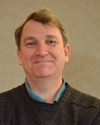Program Description
NIEHS-funded researchers investigate how DNA damage and mutations increase disease risk and determine what makes some people more vulnerable to the adverse effects of environmental factors than others. Chemicals in the environment and other factors, including UV light and dietary exposures, pose a threat to human health. Damage to DNA from exposures to these agents can result in permanent changes in the genome affecting key cellular functions and increasing the risk of disease. Cells can respond by repairing or bypassing the damaged site, or in cases of unrepairable damage, undergoing cell death. Damage-induced changes in DNA sequences, called mutations, as well as larger changes in the structure of chromosomes, can increase the risk for multiple diseases, including cancers, Parkinson’s disease, Huntington’s disease, and autoimmune diseases.
What Is NIEHS Doing?
Through NIEHS-funded research projects, scientists continue to advance efforts to detect, prevent, and treat environmentally-induced diseases in which DNA damage plays a role. NIEHS-funded scientists are developing new ways to evaluate the ability to detect and repair DNA damage at the level of the individual. NIEHS continues to emphasize the development of tools and methods for measuring DNA damage and repair capacity, research on the mechanisms of damage tolerance, and studies of the associations between DNA damage, mutations, and disease. This work may ultimately be applied to the treatment or prevention of environmentally related diseases.
Funding Opportunities
Expanding Genome Integrity Assays in Population Studies (closed) – Supported the development and pilot testing of assays, such as DNA repair capacity or mutation detection, to facilitate the wider use of genome integrity investigation in epidemiological and population studies.
Program Lead
-

-
Daniel T. Shaughnessy, Ph.D.
Health Scientist Administrator -
Tel 984-287-3321
Fax 919-541-0146
[email protected] -
P.O. Box 12233Mail Drop K3-04Durham, NC 27709


